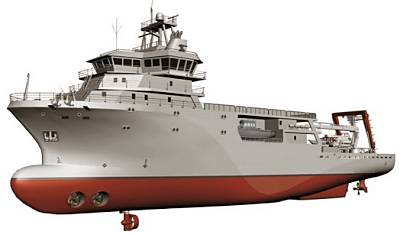WASHINGTON, April 24, 2012 — Pakistani safe havens add to the difficulty in Afghanistan’s Helmand province, and corruption also retards progress, the former commander of NATO forces in the region said here today.
Marine Corps Maj. Gen. John A. Toolan, commander of the 2nd Marine Division and the former commander of Regional Command-South West, told the Defense Writers’ Group that during his year-long tour in command of the region the problem of Pakistan frustrated him.
His area of operations in Afghanistan — the provinces of Helmand and Nimruz and Regional Command-South centered around Kandahar — are particularly susceptible to interference coming from Pakistan.
Pakistan represents a safe haven for terror groups working inside Afghanistan. The two places inside Pakistan that were problematic are Chaman — a Pakistani city near Spin Bolduk — and Bahram Chah. Chaman is a major port of entry on the road to Kandahar. It is free-flowing trade hub and the enemy has built up huge caches of bomb-making material and Taliban supplies.
Bahram Chah is a hub where drugs go out of the country and lethal aid is coming in, Toonan said. “We saw it. We interdicted a lot,” he said.
His Marines and their Afghan allies interdicted about $78 million in drugs. “But it’s a pittance,” he said. “I’m told by DEA that it’s less than 12 percent of the opium that’s moving across the border.”
The Pakistani Army’s 12th Corps was positioned across the border, he said. In his year-long tour, Toolan said he didn’t have the opportunity to sit down with 12th Corps commanders and say, “ ‘Here’s what we’re doing on our side of the border. If you can do this on your side of the border, we can really take care of this problem.’ ”
The problem is, he said, Pakistan has worries of its own and Balochistan, which borders Afghanistan’s Helmand and Nimruz provinces, has its own separatist movement underway.
“The Pakistani military knows, “if they start doing things, they could stir up the Balochistan beehive, so they just sit there. And it’s frustrating.
Diplomatic pressure on Pakistan is important, “but we don’t want to break the Pakistani government,” Toolan said.
“From my perspective as a military commander having to deal with the problem, it’s like I can’t shut the water off, I just keep mopping up the floor,” Toolan said. “If I could turn the water off in Pakistan it would be a lot better.”
The biggest threat inside Afghanistan is corruption, Toolan said. This threat, he said, consists of two types: parasitic and predatory. Parasitic corruption, he said, is from government officials feathering their own nests.
The general cited an Afghan senator from his area who is “a bad influencer in the south of Afghanistan. He’s connected to the drug industry and his influence is to keep that alive.”
Toolan said the man in question actively works to weaken the authority of Afghanistan’s central government. “As long as the central government allows people like that to operate, it keeps it weak,” he said.
Predatory corruption is something military commanders can deal with, Toolan said. This is the abuse of power, he said. This is soldiers or police who abuse their official positions for profit.
“While I was in Helmand province, there were indications that predatory corruption was occurring,” the general said. “What we tried to do was to identify it quickly … and actually hold people accountable.”
During his tour in the province, Toolan said the rule of law was starting to take root and the provincial governor and police chief also wanted to crack down on such predatory corruption.
There are solutions, but they will take time, the general said.
“We need to work really hard at strengthening the central government to take on the parasitic corruption, and maintain a close watch and cooperation with government officials to identify predatory corruption,” Toolan said.
Source:
U.S. Department of Defense
Office of the Assistant Secretary of Defense (Public Affairs)

 von
von 